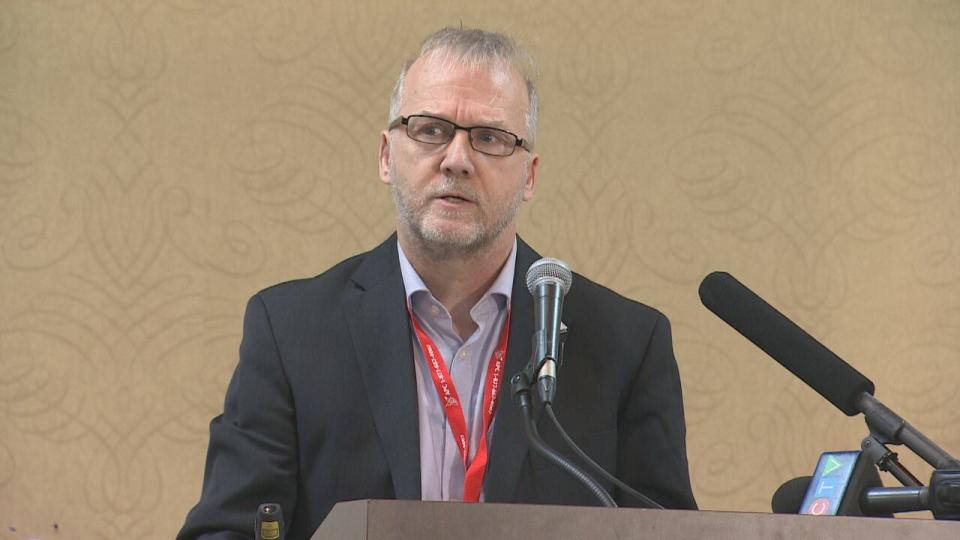P.E.I. inflation levels off but Islanders unlikely to recover lost buying power

The consumer price index on P.E.I. stopped soaring in August, but that doesn't mean consumers should expect any relief from high prices.
Statistics Canada released the consumer price index for December on Tuesday. It showed an inflation rate on the Island of 2.6 per cent from December 2022 to last month.
Almost all of that inflation happened in the first part of the year. Since August, inflation on P.E.I. has been just 1.1 per cent.
"The good news is the beatings have stopped," said UPEI economics professor Jim Sentance.

Islanders are now left hoping rising income will eventually catch up with inflation, says UPEI economist Jim Sentance. (CBC)
"The bad news is that we're still beaten up from what's happened, so prices aren't going up at the moment, on average, but they're still high. The impact of that is still being felt."
Inflation over the last three years has left prices about 17 per cent higher than they were in January 2021. That means Islanders will need to look elsewhere to recover their buying power.
"The other side of the thing is what's happening with incomes," Sentance said. "We're not going to get back what we've lost from inflation by prices falling. That's, generally speaking, not how it works. How it works is prices moderating and not going up at a huge rate, and incomes going up at a rate a little bit faster than that."
That process has already started.
Consider this chart.
The chart shows the change in the consumer price index and in average weekly earnings on P.E.I. since January 2021.
A growing gap between the two, shown shaded in red, peaked around the middle of 2022. At that point the worst of the inflation pressure was over. Demand for higher wages, including some higher-than-usual wage wins from unions, pushed incomes up.
Those gains against inflation appear to have ended in 2023, however. The size of the red area, while fluctuating, has not changed substantially.
In October, the most recent month with earnings figures available, loss in buying power since January 2021 was sitting at 8.6 per cent.
Keeping pace 'unrealistic'
While Sentance sees the possibility of wages catching up eventually, Fred Bergman, an economist with the Atlantic Economic Council, is less optimistic.
"It's probably unrealistic to see wages keep pace with inflation," said Bergman.

Canada's falling GDP per capita will make it difficult for consumers to catch up to recent losses to inflation, says Fred Bergman of the Atlantic Economic Council. (Paul Poirier/CBC)
"We're probably not going to see a situation where employees fully recover what they've lost due to inflation."
Bergman notes that GDP per capita, a large-scale measure of the standard of living in Canada, has been falling for the last 20 years or so. That trend was accelerated by inflation in the last three years, and Bergman believes it is unlikely to turn around entirely in its aftermath.


